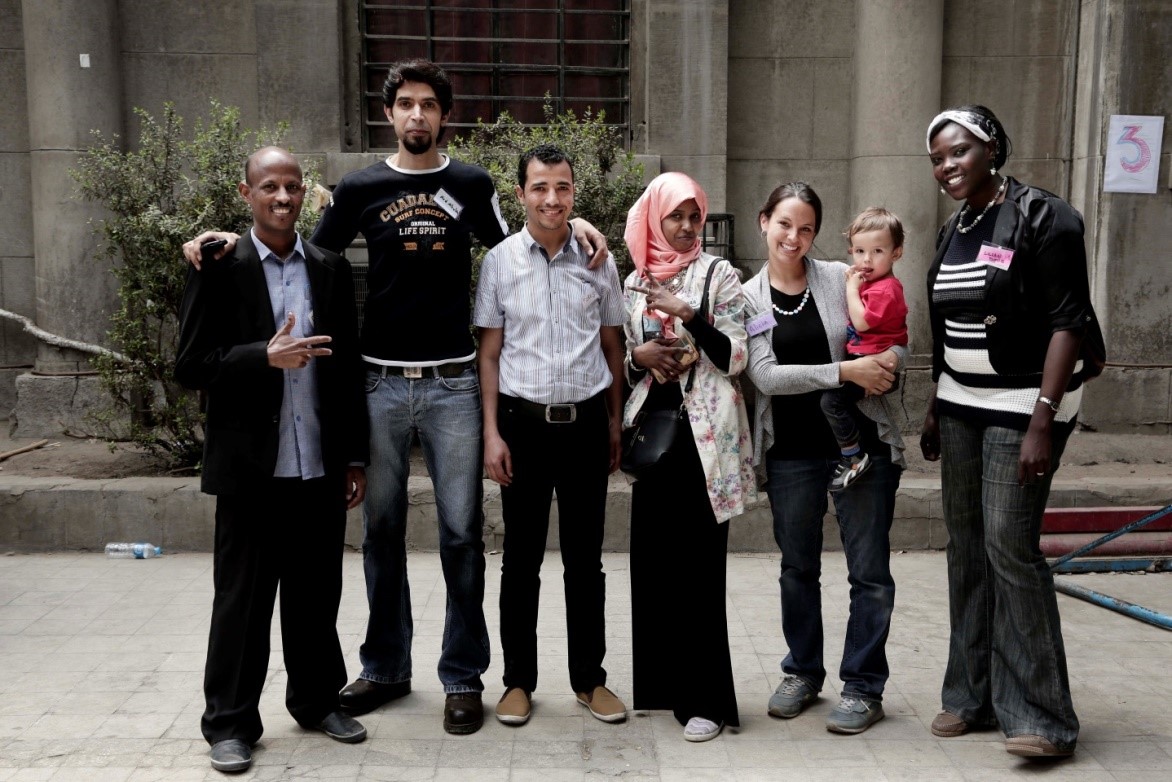Stories of Change

This is StARS’ Medical Access Team which is led by a Syrian doctor. The team advocates for refugees and vulnerable migrants to receive medical assistance and builds and maintains relationships with doctors and medical institutions to provide medical services for free or at a reduced price. The team also assesses all requests for medical grants.
At the end of 2017, the UNHCR had registered 219,413 individuals in Egypt, representing an approximate increase of 17 percent in comparison to 2016. Of the total, 57 percent are from Syria.
A small grant meant life-saving medical treatment for a refugee in Cairo
When 22-year-old Luwam came to Cairo, she did not know her way around the city or where to live. But that wasn’t her biggest challenge. She was suffering from renal failure and needed dialysis three times a week in order to maintain stable health.
Luwam had fled Eritrea, and she connected with the Eritrean community in Cairo. They did what they could to help – initially, community members put together enough money to pay for her treatments. But as community members faced their own struggles to get by, they could help less and less. They recommended that Luwam connect with St. Andrews Refugee Services, known as StARS.
StARS provides an array of services for the growing refugee population of Cairo, even against a backdrop of service providers being more and more limited in their ability to help. For example, UNHCR’s implementing partner for providing medical care has suffered from such severe cuts in funding that it is no longer able to cover all life-saving treatments, let alone other interventions that are not life-saving. This is just one example of many in which organizations face a continually diminishing capacity to service clients as a result of reduction in funding. Thanks to financial support from CWS, StARS is able to provide medical grants – grants that can life-saving – to refugees.
When Luwam came to StARS, she talked to a Medical Officer, who looked through her medical documents and learned that even though she had already applied for refugee status with the UNHCR, her appointment was still months away.
Without that status, she couldn’t get assistance from UNHCR’s implementing partner in the health sector. And without treatment, her medical condition could get much worse. Fast. She could even die.
After exploring other options, the StARS team decided to provide Luwam with a $280 grant to cover a month of dialysis, further tests and treatment. The team also reached out to UNHCR to advocate that her case be fast-tracked. As a result, Luwam was officially recognized as a refugee by the UNCHR and is now receiving the free treatment she needed.
The financial support that StARS receives from CWS means that they can provide these critically-important grants. And it isn’t just Luwam.
A 16-year-old refugee girl had a baby as a result of rape. She couldn’t provide enough breast milk for the baby, but she also couldn’t afford formula. StARS provided her with a grant to pay for formula.
A single mother of four was unable to work because of a cataract in her left eye. She was sent away from the UNHCR implementing partner on medical treatment, but StARS was able to provide her with the grant to cover the $209 cost of the operation. After the operation, she was able to find a part-time job and says she is more capable of going about her daily activities and looking after her children.
A 20-year-old Somali woman came in to the drop-in and emergency service at StARS. She had been recently raped, and she urgently needed a blood test in relation to the rape. She hadn’t been in Egypt long, and no one else was able to help her. StARS provided the $6 grant to get the blood test done.
The Medical Access Program team is made up of refugee doctors, nurses, midwives and pharmacists from Syria, Ethiopia, Yemen and Eritrea. They make recommendations about medical grants, and they provide medical advice or accompany those in need as they go to hospitals or a doctor to help facilitate the process. They have also created a network of Egyptian doctors and medical institutions willing to provide low-cost or pro bono medical services.
We are hard at work to ensure that refugees in Cairo can access the care and treatment that they need.
